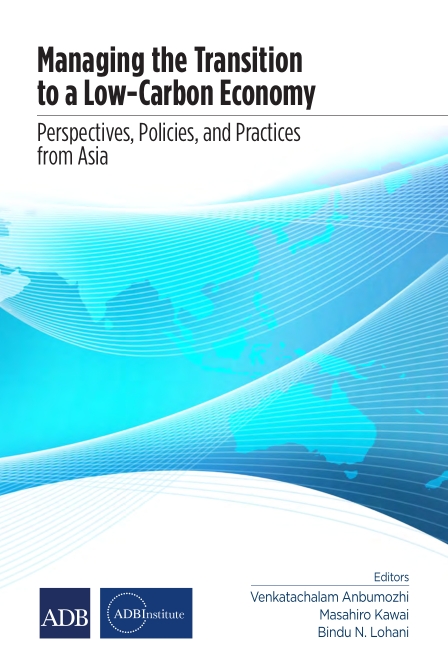ADBI Booklet
Managing the Transition to a Low-Carbon Economy
Perspectives, Policies, and Practices from Asia
PUBLISHED BY
Asian Development Bank Institute (ADBInstitute)
Kasumigaseki Building 8F, 3-2-5
Kasumigaseki, Chiyoda-ku
Tokyo 100-6008
Japan
Click image below to download in PDF format

Introduction
Technological measures, whether to promote low-carbon green growth or rapid industrialization, have unintended side-effects. These can be both negative (co-damages) and positive (co-benefits). In many analyses of the effects of current environmental policies, these side effects are often considered only partly or not at all. Furthermore, interactions among different technology measures can influence and be influenced by the environment and the socioeconomic system. Therefore, there is an urgent need for a methodological framework that considers all side
effects to enable a better evaluation of technologies for all stakeholders at local, regional, and national levels.
When implementing and creating initiatives that promote the development and use of low-carbon technologies, robust methods are needed to identify, categorize, and quantify their co-benefits and co-damages. Interest in co-benefits is increasingly becoming a crucial factor for enabling successful greenhouse gas (GHG) mitigation strategies that do not compromise national economic development plans (TERI 2010). However, policy makers need a way of quantifying the co-benefits from each low-carbon technology on a common platform so they can be evaluated against cost-efficient traditional technology projects. A methodology is provided here to evaluate the co-benefits of low-carbon technologies, paving the way for investments and policy developments in developing countries, and thus to create an economy that is resilient to climate change.
Read more…

